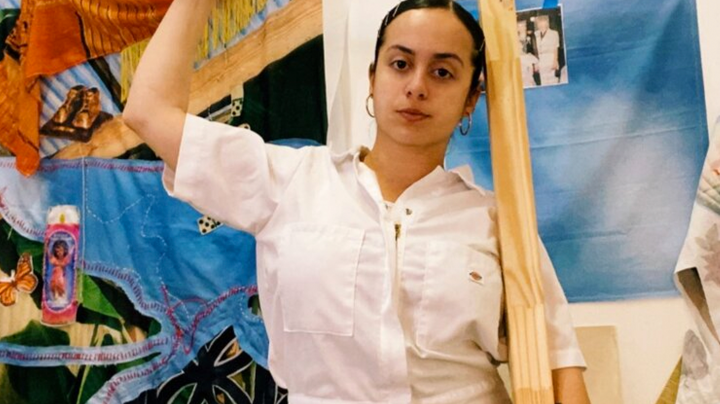This Colombian American Artist Makes Quilts in Support of Migrant Children at Border

Courtesy of Paola de la Calle.
In partnership with San Francisco-based Galería de la Raza, Colombian American artist Paola de la Calle is using her art to call attention to the social issues affecting Latino children who are detained at the U.S.-Mexico border.
De la Calle created quilts for the Caravan for the Children campaign, which was developed to inspire the Biden administration to make positive changes to their border policy that would benefit children and families.
“I think art sometimes does what words can’t,” de la Calle told Vogue magazine. “And the call here is to take these children out of cages and reunite them with their families. I think there is a missing step here, and that is the step of healing. These children are facing a lot of trauma. The separation from their families is very difficult, and I believe that if we consider the reality that they will carry this trauma with them for many years into the future, we realize it is our responsibility.”
De la Calle says the quilts she is creating for the Caravan for the Children campaign include poems written by 10 different Central American poets. Each one offers “different perspectives on resistance, liberation and home.” It’s something central to the message of the project.
“It was important to me that these voices shined and informed the images that were created for the quilts because this isn’t something a single person can have a full perspective on,” she says. “It’s about community. It’s about uniting people to work together to request the reunification and the healing of these children.”
The quilts were unveiled in Washington, D.C. on May 1, which marked Biden’s 100th day in office. “I firmly believe that we do not need to see the violence to understand the pain, to feel empathy and want to do something about it,” de la Calle says. “The quilts are really a symbol of relief and a symbol of community.”